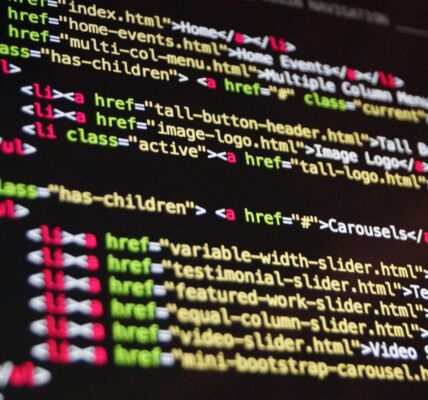So you want to be a developer? Now’s a great time to learn programming. The salaries are high, the job demand is growing, and a new and exciting coding language tops the popularity rankings every year.
But which is the best programming language to learn? If you’re new to this, there are many choices to pick from, making it difficult to know where to start.
Programming languages are continually evolving—while one dies, it gets replaced by the new big thing. If you time it well, you stand to earn a lot of money. Or you can go with the tried and tested languages that have stood the test of time.
All of it is enough to make your head spin. Which programming language is best to learn? Which give the highest salaries? Are they easier to start learning? This list will guide you through everything you need to know about picking the best programming language to learn.
Let’s explore!
Every programming language is different. While each programming language has its unique syntax, how it’s written, run, and compiled can change everything.
Many developers prefer to work with certain types of languages. It’s also a lot easier to migrate between similar languages, so the first programming language you learn matters.
So what are the different types of programming languages? There’s a difference between scripting and programming languages? Let’s take a look.
- Programming languages can be just about anything, but they’re often best for software development as they can be used on various platforms and tend to be compiled rather than interpreted. Most programming languages are intended for software development, to develop programs you download and run on your device.
- Scripting languages are just the opposite. They’re often interpreted, which means their code runs on the fly rather than going through a compiling process inside a program. Web development languages are often scripting languages.
- Markup languages aren’t precisely programming languages, but they’re used for web development. These are human-readable tags used to format a document.
- Web development languages are specialized for creating websites, either in the frontend or backend.
- Frontend (or client-side) languages change a website in the user’s browser. For instance, clicking something on the website and producing an animation would result from frontend programming like CSS, HTML5, and JavaScript. It’s usually a combination of all the above languages.
- Backend (or server-side) languages change a site from the server or application layer. For example, submitting form data, or changing something in the database, is backend programming.
You should also note that many people just use “programming languages” to refer to all coding languages as a whole. A scripting language is a specialized programming language, but not all programming languages are scripting languages.
Not all languages below are programming languages in the strictest sense, but they’re all used for coding.
Which Programming Language Is the Best?
There’s no clear answer on which coding language is best. Each has its pros and cons and shines in different situations. But when it comes to specific categories, there are a few clear winners. These are the best languages for:
- Beginners: For the absolute easiest languages to learn, even if you have no experience at all, start with HTML/CSS, Go, Ruby, PHP, or Python.
- Web developers: HTML, CSS, and JavaScript are a necessity for frontend developers. Backend developers should look into Ruby, Python, PHP, and Go. And, of course, SQL for database management.
- Software developers: C++ is undoubtedly the most powerful. But don’t overlook Rust, Python, Scala, or C#. It all depends on the software you’re building.
- Mobile developers: Swift is best for iOS, and Kotlin for Android. But general-purpose languages like C++ and Java can work well too.
- High salary: Swift, Rust, Scala, Kotlin, and Go all help you earn about $100k/year, with Scala and Go generating the highest salaries.
- Popularity: Python is highly popular, and considering its versatility, it stands to stay at the top for a long time. JavaScript, Java, C#, and C++ are also quite popular themselves.
- Flexibility: C++ might be the giant in flexibility, but Rust, Java, Scala, Kotlin, and Python all work well cross-platform and in various situations.











